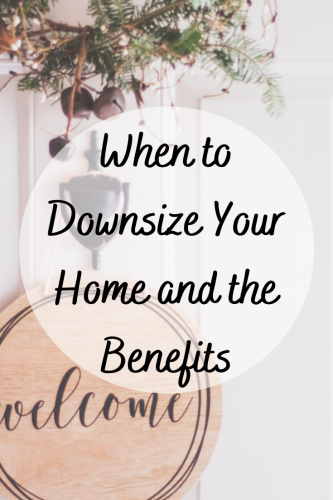
At times, having a large home doesn’t make economic sense as you approach the mid-50s. The children might have moved out, and your needs changed, have a less busy schedule and prefer convenience. When you have smaller children, expansive homes in quieter suburbs are a preferred choice. Still, the loneliness and inconvenience of being far from neighbors, shopping malls and other amenities strike when they leave the nest. To downsize means moving to a smaller house probably in a more populated neighborhood near amenities. How do you make it work?
Check What the Market Has
Familiarize yourself with the different properties and financing plans in the market as you compare prices. Check a home loan comparison platform to gauge the various products in the market and their prices. Comparing the financing options available helps you choose suitable products and at the same time, avoid bad choices and get the right loan to value ratio.
Understand Your Needs
How many bedrooms do you want, will you have occasional guests at your house? Which is your preferred location, and do you prefer a newer home? Other considerations when looking for a smaller home are:
- Size of your current household
- Proximity to neighbours
- Proximity to shops, restaurants, malls and a convenient transport system
- Your financial goals
- Size of your furniture
- Need for personal space and a workstation
- Future Goals
If you work from home, you need a house with extra space that allows uninterrupted work sessions. You also have to discard some items and only move in with what fits into the new space. It’s not easy deciding what to let go and keep, but it’s a decision you have to make.
Why Downsize?
When older, you need a smaller house to move about with ease because you get tired more quickly. Also, some house designs such as a bedroom up the stairs may not be practical. It also feels cozier and less lonely in a smaller home. You’ll again miss simplicity which you can achieve with a less complicated living arrangement.
Downsizing gives you a more flexible lifestyle where you can walk more than drive. If you want to go to the store, you don’t have to drive but exercise a bit as you replenish your supplies. It also feels warmer when you are around neighbours you can talk to every day and catch up over occasional home visits, making you feel less lonely.
Maintaining a big home comes with more expenditure. You’ll have higher property taxes and mortgage rates and spend more on maintenance, cleaning services, and the power bill. To make a successful sale, get to know your home’s value and what similar products are fetching to pocket more money in the deal.
Selling your home can free up cash you may use to take care of short term needs or invest in a passive income, boosting your retirement savings. You will also be paying less mortgage, meaning more protection to your retirement plan.





Leave a Reply